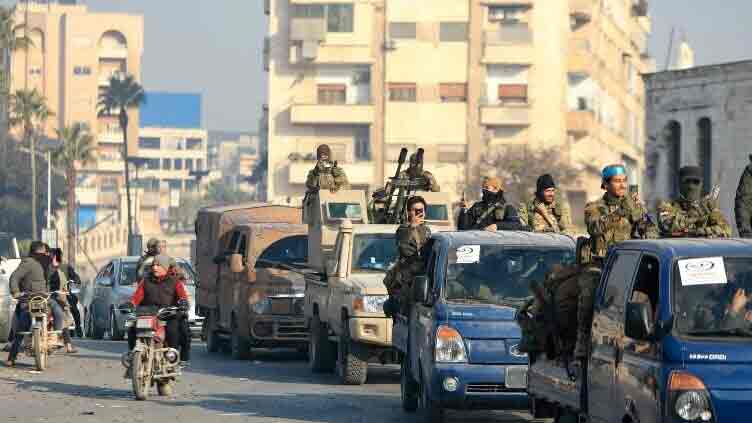Syrian rebel assault widens as Assad races to defend Homs, Damascus

World
Syrian rebel assault widens as Assad races to defend Homs, Damascus
(Reuters/AFP) - Syrian rebels pressed their lightning advance on Saturday, saying they had seized most of the south, as government forces dug in to defend the key central city of Homs to try to save President Bashar al-Assad’s 24-year rule.
Since the rebels’ sweep into Aleppo a week ago, government defences have crumbled across the country at a dizzying speed as insurgents seized a string of major cities and rose up in places where the rebellion had long seemed over.
Besides capturing Aleppo in the north, Hama in the centre and Deir al-Zor in the east, rebels said they have taken southern Quneitra, Deraa and Suweida and advanced to within 50 kilometres of the capital.
Government defences were focused on Homs, with state television and Syrian military sources reporting massive air strikes on rebel positions and a wave of reinforcements arriving to dig in around the city.
Meanwhile, the rebels extended their control to almost the entire southwest and said they had captured Sanamayn on the main highway from Damascus to Jordan. The Syrian military said it was repositioning, without acknowledging territorial losses.
The pace of events has stunned Arab capitals and raised fears of a fresh wave of regional instability, with Qatar saying on Saturday it threatened Syria’s territorial integrity.
Syria’s civil war, which erupted in 2011 as an uprising against Assad’s rule, dragged in big outside powers, created space for militants to plot attacks around the world and sent millions of refugees into neighbouring states.
On Saturday, anti-government protesters toppled a statue of Syrian President Bashar al-Assad’s late father Hafez in the mostly Druze and Christian Damascus suburb of Jaramana on Saturday, witnesses told AFP.
A witness said by phone that he saw “dozens of protesters” tearing down the statue in a main square in Jaramana, which bears the former president’s name.
Another witness said the statue had been smashed when he went by the square later. Video footage circulating online and verified by AFP showed young men toppling the statue and chanting anti-Assad slogans.
Western officials say the Syrian military is in a difficult situation, unable to halt rebel gains and forced into retreat.
Meanwhile, US President-elect Donald Trump has said that the US should not be involved in the conflict in Syria.
“Syria is a mess, but is not our friend, & the United States should have nothing to do with it. This is not our fight. Let it play out. Do not get involved!” Trump said in a post on his social media platform Truth Social.
Assad had long relied on allies to subdue the rebels, with Russian warplanes bombing from the skies while Iran sent allied forces, including Lebanon’s Hezbollah and Iraqi militia, to bolster the Syrian military and storm insurgent strongholds.
But Russia has been focused on the war in Ukraine since 2022 and Hezbollah’s leadership has been decimated this year in its own gruelling conflict with Israel.
Russia on Friday urged its nationals to leave the country. Iran evacuated families of diplomats from Syria, an Iranian official said.
Hezbollah has sent some “supervising forces” to Homs on Friday but any significant deployment would risk exposure to Israeli airstrikes, Western officials said.
Israel attacked two Lebanon-Syria border crossings on Friday, Lebanon said.
Iran-backed Iraqi militias are on high alert, with thousands of heavily armed fighters ready to deploy to Syria, many of them amassed near the border. But they have not yet been ordered to cross, two of their commanders said.
Iraq does not seek military intervention in Syria, a government spokesman said on Friday.
Iran, Russia, and Turkiye, which are the main foreign supporters of the rebels, will meet on Saturday to discuss the crisis in Syria.
Iranian Foreign Minister Abbas Araqchi told Iranian television: “No specific decisions have been made regarding a horizon for Syria’s future.”
He said his meetings in Doha were focused on preserving Syria’s territorial integrity and preventing “potential consequences” in the region.


